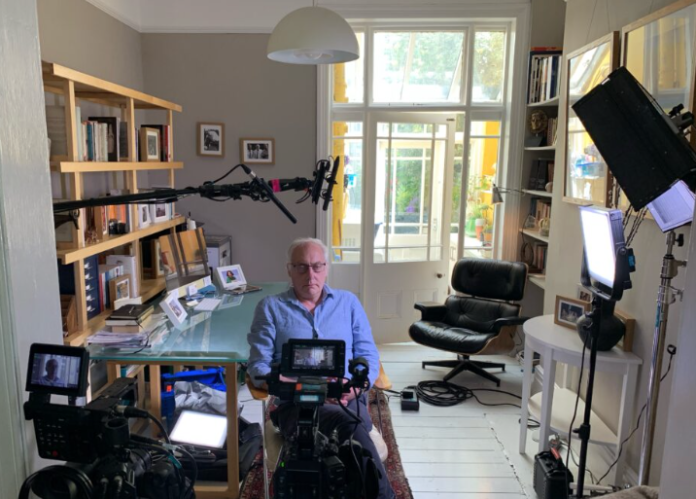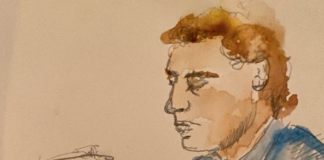- ‘It’s the new economy, stupid…’ - 27th February 2026
- Eyes right… - 26th February 2026
- Opposites attract - 26th February 2026

During 23 years with the BBC, and 41 years in journalism (when he was trained to use simple language, avoiding jargon), our Editor, Welshman Phil Parry, has always been lucky enough to work in a relatively free environment for the media, and this is now emphasised by more evidence emerging today of the opposite being the case in one of the biggest countries on earth – China.
It has always been hard for journalists and, it seems, a lot of people don’t like me.

I receive appalling abuse on social media, when all I am trying to do is tell the truth.
It is harder, though, for journalists in other countries, as well as others who believe in free speech – especially China, where new evidence of a terrible crackdown is coming to light.
Amid a faltering economy, its leader Xi Jinping appears to be doubling down on this crackdown, so those who voice concerns about policy are punished. Journalists like me, as well as those who speak out on social media, are bearing the brunt.

There is a term coined by protesters in China of “three generations in tobacco”. It means a privileged elite whose members hand out coveted jobs (such as managerial roles in the state’s tobacco monopoly) to their own types.
One critic posted on social media: “The result of this hereditary system is a closed circle of power that completely cuts off opportunities for people at the bottom to rise up!”, and hundreds expressed agreement.
 “The ruling class is solidifying”, one replied. Another fumed: “The children of the elite get ahead, and the children of the poor remain poor”. Meanwhile one user of Weibo criticised the big pensions enjoyed by the elite.
“The ruling class is solidifying”, one replied. Another fumed: “The children of the elite get ahead, and the children of the poor remain poor”. Meanwhile one user of Weibo criticised the big pensions enjoyed by the elite.

“Common folk, do you get it now?…Vested interests are untouchable, you can’t even talk about them”, he wrote on the social media site.
“They’re all parasites”, one person responded. “Vampires”, said another. “Social stagnation is getting worse”, a third chimed in.
Someone even ventured: “Without another revolution, it’s impossible to resolve these bizarre injustices”.


Yet Mr Xi’s apparatchiks were having none of it, and within days the thread disappeared from China’s heavily censored internet.
The public must also be very careful about how they describe the collapse of the Soviet Union because Mr Xi is extremely worried about that.
He and his top officials have railed against “historical nihilism”, which is party-speak for criticism of the horrors of Stalinism and Maoism.

They have accused the former Soviet leader, Nikita Khruschev, of setting the trend with his “secret speech” of 1956 denouncing Stalin’s personality cult, which the people have been told “ignited the fire of nihilism”.
Then there is the party propaganda the state-media spout, including the “special challenges of a large party”.
Since the party congress numerous books have been published with those words on the cover, including at least three this year.
In July state television broadcast a two-part documentary about avoiding collapse like we saw in the Soviet Union. Part one was on the ‘special-challenges’ theme.
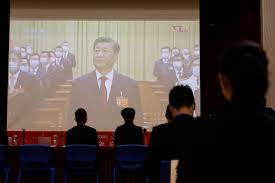
The recent 20th Congress of the ruling Chinese Communist Party (CCP) made clear how Chinese citizens (as well as journalists), were to behave.
In an almost two hour plodding speech (a ‘work report’ in party jargon) to the faithful, Mr Xi stressed ‘reuniting’ China, through a possible invasion of Taiwan, and coded references were made to the perceived decadence and decline of America.

The young should heed the CCP, he said, study diligently, keep fit, pursue realistic goals, and, in due course, make more babies for the motherland.
To progress up the ladder of Mr Xi’s party, people must show that they have studied a number of courses, and the first four titles of them are:
1. Guide to Xi Jinping Thought on Socialism with Chinese Characters for a New Era. 2. The Belt and Road Initiative (which was begun by Mr Xi). Rebuilding China, Rebuilding the World.
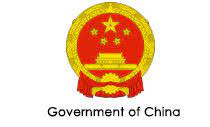
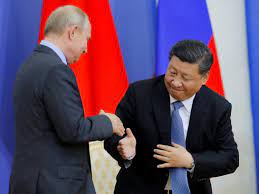
3. The Fourteenth Five Year Plan for National Economic and Social Development of the People’s Republic of China and an Outline of the Vision for 2035. 4. Xi Jinping Ecological Civilisation Thought.
Mr Xi’s speech and accumulation of powers, come even after he has continued to back Vladimir Putin (if nervously), as he pursues his invasion of Ukraine, and in the face of awful human rights abuses THERE.
Apart from being connected to the outlawing of an independent media, the Chinese Foreign Minister Wang Yi has also said that cooperation between China and Russia, is advantageous to the two peoples, and Mr Xi has stated their friendship “knows no limits”.

The Foreign Correspondents Club (FCC) of China (which was deemed an “illegal organisation”), though, has highlighted the reality of what is actually happening inside the huge country.
Their report said that journalists faced physical assault, hacking, online trolling and visa denials, as media freedom in China declined at a “breakneck speed”. Censorship has been implemented and mandated by the CCP.
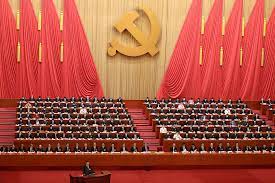
Government officials censor content for largely political reasons, such as in order to curtail opposition, as well as to block information about events which are unfavourable to the CCP, like, for instance, the 1989 Tiananmen Square protests and massacre, but also so that officials can maintain control over the populace.
Since Mr Xi became General Secretary of the CCP (and has secured a THIRD term against norms) in 2012, censorship has been significantly tightened.
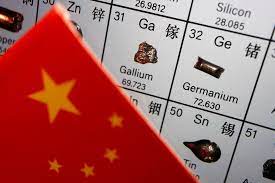
The government today has control over all media capable of reaching a wide audience, including television, print, radio, film, theatre, text messaging, instant messaging, video games, literature, and the internet.
Its grip is almost total, and there is only a semblance of defence for it. The Chinese Government assert they have the right to command what is said over the internet within the territory, and that their rules do not infringe on citizens’ access to free speech (Ukraine and independent journalists might be intrigued by this!).
 But Reporters Without Borders, have ranked China’s freedom of the media situation as “very serious”, the worst ranking on their five-point scale.
But Reporters Without Borders, have ranked China’s freedom of the media situation as “very serious”, the worst ranking on their five-point scale.
Even more than 10 years ago China’s position was terrible. The ‘OpenNet Initiative’ classified internet censorship in China as “pervasive” in political and conflict/security areas, as well as “substantial” in those concerning social and internet tools, the two most extensive classifications of the five they use.
 Freedom House, a US-backed Non-Government Organisation (NGO), ranks the Chinese press as “not free”, the worst possible ranking, declaring that “state control over the news media in China is achieved through a complex combination of party monitoring of news content, legal restrictions on journalists, and financial incentives for self-censorship”.
Freedom House, a US-backed Non-Government Organisation (NGO), ranks the Chinese press as “not free”, the worst possible ranking, declaring that “state control over the news media in China is achieved through a complex combination of party monitoring of news content, legal restrictions on journalists, and financial incentives for self-censorship”.
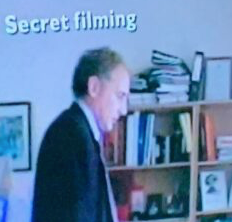
Local journalists in mainland China and Hong Kong are also being targeted, as Mr Xi exerts ever greater authority in China.
Journalists’ attempts to report facts (as I do), such as in the persecution of the mostly-Muslim Uyghur people in the north-western region of Xinjiang, are being severely hampered. Human rights groups believe China has detained more than one million Uyghurs against their will over the past few years, in a large network of what the state calls “re-education camps”, and that it has sentenced hundreds of thousands of them to prison terms. There is also evidence that Uyghurs are being used as slave labour, and of women being forcibly sterilised, as well as some former camp detainees alleging that they have been tortured and sexually abused.
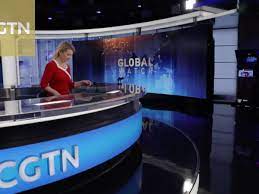
The state-controlled television and radio station CGTN, however, have a slightly different view of events surrounding the Uyghurs, and their journalists have ‘reported’ that: “Some anti-China forces in the West, including the United States, have concocted and disseminated plenty of false information about China’s Xinjiang Uygur Autonomous Region”.
So if you toe the line (as I DON’T), you might be expected to get a job here to churn out this kind of nonsense.

Just so long as you do not take to social media to condemn the elite as “parasites” or “Vampires”…
Details of disturbing practices working in a free media environment during his long journalistic career, as Phil was gripped by the rare neurological condition Hereditary Spastic Paraplegia (HSP), are revealed once more in a major book ‘A GOOD STORY’. Order it now!
Tomorrow after those years in The BBC Phil is pleased to see that the giant corporation has now apologised to a television contestant over an allegedly “toxic environment”, as well as ‘bullying’, but shocked at how it highlights that the organisation has been rocked by ANOTHER scandal, with insiders saying the man at the top must take the fall.









